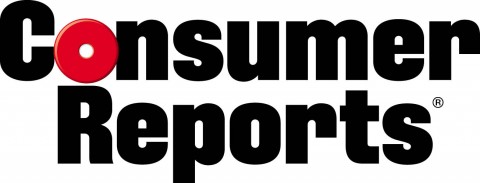Consumer Reports Health investigation finds rush to Overtest and Overtreat; Disturbing Overuse of Angioplasty
 Yonkers, NY – An investigation by Consumer Reports Health reveals that the practice of healing hearts has become a money-making machine that too often favors profits over science. The report shines a light on excessive testing and overtreatment, taking special note of the overuse of angioplasty.
Yonkers, NY – An investigation by Consumer Reports Health reveals that the practice of healing hearts has become a money-making machine that too often favors profits over science. The report shines a light on excessive testing and overtreatment, taking special note of the overuse of angioplasty.
To help consumers make informed decisions about their cardiac care, Consumer Reports Health is providing several consumer tools including Ratings for 323 surgical groups that perform heart bypass surgery in the U.S., Ratings for heart screenings, and a heart-risk calculator.
The 11-page report forms the cover story of the September issue of Consumer Reports magazine. It is also available online at www.ConsumerReportsHealth.org.
The marketing of high-tech cardiac screening is pervasive, says the report, and is being promoted by some hospitals, medical centers, and other groups to cash in on consumers’ fears. Baby boomers are turning 60 and heart disease remains the top killer of U.S. adults, so it’s no wonder that Americans are concerned about their aging hearts.
“Consumers should be on guard because of the potential for exploitation,” said John Santa, M.D., M. P.H., director of the Consumer Reports Health Ratings Center. “Americans are rightly concerned about their heart health but they’re being inundated with confusing and often misleading messages from marketers trying to cash in on their fears. Consumers should be skeptical of any advertising or promotion they receive from organizations or individuals who are providing heart tests or treatments.”
Too Many Tests, Too Many Treatments
Too many tests are being administered to healthy people. A recent survey by Consumer Reports Health found that nearly half (44 percent) of people without heart risk factors or symptoms reported undergoing a heart-specific screening test such as an electrocardiogram, exercise stress test, or ultrasound of carotid arteries, even though such tests aren’t recommended for healthy people.
Inappropriate tests can in turn lead to unnecessary treatments such as angioplasty, an invasive procedure to clear blockages in the coronary arteries when dietary changes and exercise, plus drugs, would be just as effective and much safer. “We’re seeing hospitals and heart centers in the United States pursuing a ‘mass marketing’ approach to angioplasty,” said Santa. “It can be a lifesaving approach in the midst of a heart attack but can be risky and not effective in people without significant symptoms.”
The push to overtest and overtreat heart disease, explains the report, stems in part from outdated notions of the disease as a kind of plumbing problem. Doctors would often test for blockages and then clear them with angioplasty. “Medicine doesn’t change quickly or easily,” says Steven Nissen, M.D., chairman of the department of cardiovascular medicine at the Cleveland Clinic.
Nissen says that the health-care system isn’t helping because it tends to favor expensive procedures. “Physicians are reimbursed far more for a 20-minute angioplasty than an hour-long discussion. Those financial incentives inevitably drive clinical decisions. That’s why patients have to do their own due diligence to get the best care,” says Nissen.
If testing reveals blockages, angioplasty or bypass surgery might be warranted. But even then, a patient should weigh his or her options, and possibly seek a second opinion. If you’re a patient with heart disease and you need a cardiac surgeon, says Santa, there is reliable data to draw on. This year Consumer Reports Health is adding more than 100 heart surgical groups to its Ratings.
Patients who are considering a surgical group should check to see if the group in question is rated by Consumer Reports Health. If not, it’s best to ask whether the group reports to The Society of Thoracic Surgeons (STS), which gathers information from more than 90 percent of the roughly 1,100 surgical groups in the U.S. that perform cardiac surgery.
Tools To Help Consumers Make Informed Decisions
Consumer Reports Health has created several new tools to help consumers make informed decisions about cardiac care including the following:
Ratings for Heart Surgeons: Through a collaboration with The Society of Thoracic Surgeons (STS), CRH is able to provide Ratings for 323 surgical groups that perform heart bypass surgery.
“In the past decade, there has been a dramatic reduction in mortality among heart surgery patients, and much of that improvement is due to surgeons’ willingness to track their own performance. Participation in the STS National Database provides the surgeons with frequent feedback to help them compare their local results with national benchmarks,” said Fred H. Edwards, M.D., who helped establish the Database in 1989 and is now director of The Society of Thoracic Surgeons Research Center.
(Click on Doctors & Hospitals tab at www.ConsumerReportsHealth.org)
Ratings for Heart Screenings: There’s a vast array of heart tests, some of which are new and high-tech. To better understand these tests and gauge which ones are appropriate, consumers can access Ratings that are specifically tailored to an individual, taking into account age, gender, and risk level. Consumer Reports Health emphasizes that everyone should be sure to have their blood pressure and weight measured at every doctor visit. (www.ConsumerReportsHealth.org/hearttests)
Heart-risk calculator: An interactive online tool that allows an individual to gauge the age of their heart by providing key health information. The app-like tool also estimates one’s risk of having a heart attack or stroke in the next ten years. (www.ConsumerReportsHealth.org/heartrisk)


